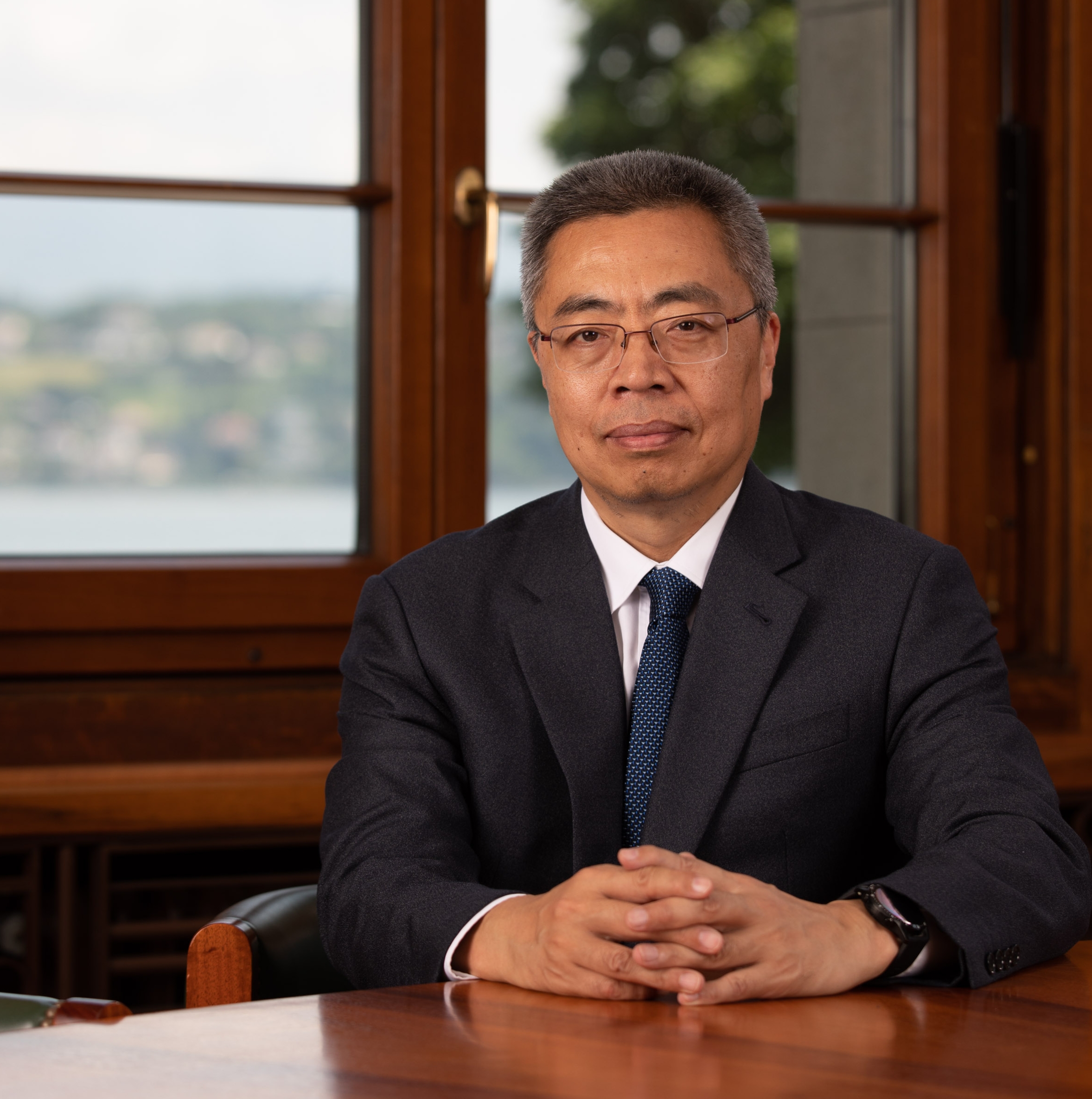“Although world trade has been through challenges including supply chain disruption, transportation congestion, and container shortage in recent years, more than 75 percent of the global trade is still operated under the rules of the World Trade Organization. I don’t agree with the allegation that the WTO crisis is so severe that it’s unsolvable,” said WTO's Deputy Director-General Zhang Xiangchen in an online speech at the 2023 International Governance Forum on July 28.
The forum, themed “the reconstruction and innovation of international economic and trade rules”, kicked off on July 26 at the Guangdong University of Foreign Studies in Guangzhou, and lasted until July 29.
 Zhang Xiangchen (Photo/WTO)
Zhang Xiangchen (Photo/WTO)
Four key issues to be addressed in WTO reform
“The international trading system is undergoing slow and long-term changes: Countries are attaching more importance to security; the diversification of multinational companies’ geographical layouts is accelerating; major-country rivalry is intensifying; competition in new sectors is increasing among nations; and the gap within developing countries is widening,” Zhang elaborated.
There is a broad consensus that the WTO needs reform to deal with the changes, according to Zhang, where the organization has to find ways to address four major issues, that is, the Appellate Body crisis, the coexistence of countries with different economic systems, the disagreement about special and preferential treatment to developing countries, and the low efficiency of WTO’s decision-making process.
“The WTO reform is bound to be a hard and lengthy one. We need to start with the easy things and gradually achieve our goals,” Zhang said and took the WTO Agreement on Fisheries Subsidies as an example, which was adopted by the 12th Ministerial Conference in June 2022, marking a major step forward for ocean sustainability by prohibiting harmful fisheries subsidies and representing the first WTO agreement to focus on the environment and only the second agreement reached at the organization since its inception.
Through advancing WTO reform, Zhang expects the institute will better adapt to and serve the new trend of international trade, which is green, digital, and inclusive.
“The US trade war doesn’t conform to economic rules”
Zhang noted the trade war launched by the US against China is posing significant challenges to the international trading system. “The trade war is based on political motives instead of the economic ones. Scapegoating China is an expedient for the US when it has no effective solution to the social and economic problems at home.”
Zhang added that tariffs as a way of regulating international trade is a blunt instrument and cannot protect either domestic industries or enterprises. “When imposing additional tariffs on Chinese goods, the US may also raise the costs of its own businesses.”
However, driven by political benefits, Washington continues the trade war and now shifts its strategy from “decoupling from China” to “de-risking”, Zhang stated.
“The previous decoupling strategy was widely criticized by experts and international organizations including the WTO, because the China-US decoupling could reduce global gross domestic product by 5 percent in the longer run, and the projected welfare losses for the global economy of a decoupling scenario can be as drastic as 12 percent in some regions, according to the WTO,” Zhang elaborated.
In terms of the “de-risking” strategy, Zhang analyzed that there is a lack of clear definition of the “risk”, and the strategy will also cause a contradiction between the benefits of US enterprises and the country’s national interests, where business costs could rise because the import from certain countries is restricted by the government.
“Economic globalization is still the trend of the world. We must believe that globalized investment and production are in line with the law of the market. The problems of the international trading system will be addressed but not through division and confrontation,” Zhang noted.
Reporter | Lydia Liu, Sherry Lyn (intern)
Editor | Olivia Yang, Nan, Jasmine, Jerry
















